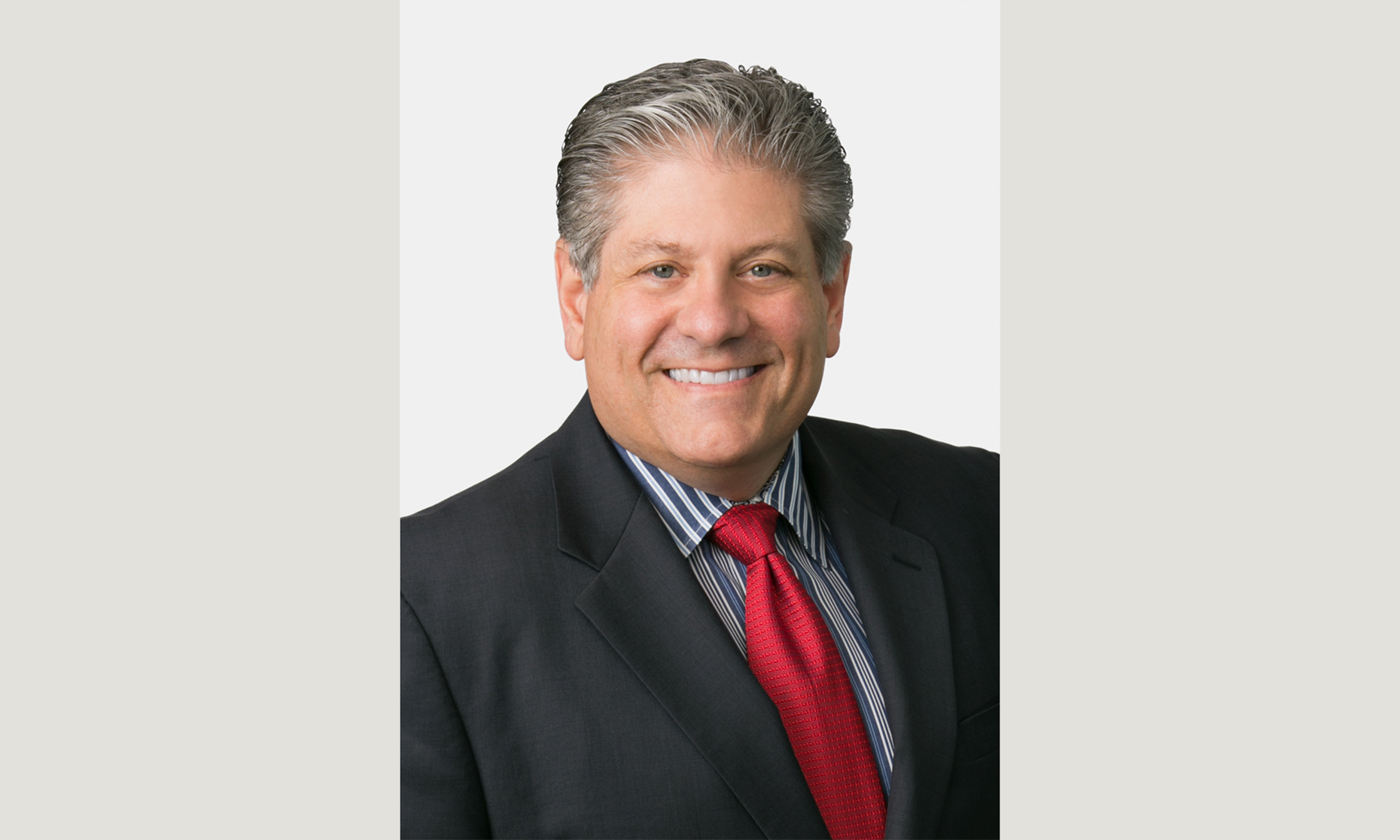Q&A: Akerman Leader Scott Meyers Discusses Competition in the Face of Consolidation and Continuity of Leadership
Akerman CEO and chairman Scott Meyers sees the silver lining in an increasingly crowded Florida market and discusses the lessons he learned from longtime firm leader Andrew Smulian.
February 03, 2020 at 07:00 AM
7 minute read
 Akerman CEO Scott Meyers.
Akerman CEO Scott Meyers.
After five months officially shadowing longtime Akerman leader Andrew Smulian, Chicago-based partner Scott Meyers has officially taken over as head of the Am Law 100 firm.
His appointment marks the first time Akerman has been led by a non-Floridian. Meyers joined Akerman from Ulmer & Berne in 2014 and was tasked with building its nascent Chicago location as the office's managing partner. The outpost rapidly grew from eight to 55 attorneys. And in 2018, Meyers was promoted to firmwide managing partner before he was voted in as chairman and CEO.
Meyers spoke with The Daily Business Review about his plans for the firm, and how it will compete in a climate of consolidation and scale currently in vogue in Big Law. The conversation has been edited for clarity and length.
DBR: How would define your leadership style? Compare and contrast your style with Smulian's.
SM: I would say my style is collaborative and consensus-building. I very much believe the role of leadership is to empower our attorneys to become great and to have them succeed. A big part of that is also leading by example. At Akerman, we say culture is not something you say but do.
Jack Welch [former CEO and chairman of General Electric] said that before you are a leader, success is all about growing yourself and once you become a leader it's all about growing others. And I think that really captures the essence of what leadership at Akerman is all about. It's really making sure we are helping others become their very best selves. And I think Andrew and I are cut from a very similar cloth on that.
With the understanding that people have been really happy with the progress made over the years, there's a desire to have a very similar style in leadership. I think the firm will not be disappointed in that.
DBR: Given recent trends toward consolidation, will Akerman resist the urge to consolidate? How will the firm compete with scale?
SM: Growing for growth's sake breeds a few problems, not the least of which is if growth isn't based on client drive and client demand and client need, then it begs the question: What's the point of doing it? The second issue is if you're growing just to get bigger you're going to have to abandon your core culture and just go for size. I think you see that throughout the legal community. To me the trend isn't just about consolidation, it's the ubiquity among the sea of sameness. Law firms seem to be chasing the same model and all combining into the same type of firm.
That's certainly one model and clearly it can be successful. But I think it comes at a very high cost to your people, your clients and your community.
Our growth has been through acquisition of other firms, some of it has been through organic growth, and some of it has been a combination of both, by acquiring a small firm and then growing them out. But through all of that, it is imperative that we make sure that when we're acquiring other firms we have a passion to preserve the culture.
I think we will continue to grow in the markets we already are in. We're going to remain committed to our significant presence in Florida, and we will be looking for new markets where our clients want us and need us to be.
DBR: What do you think is the significance of being the first non-Floridian to lead Akerman?
SM: I think it allows for external perception to keep up with the objective reality of who we are as a firm. For a long time, we've been a national law firm with a significant Florida presence rather than just a Florida law firm with a few national offices. This new location of the chairmanship is consistent with what Akerman has been and what it continues to want to be: a national firm, although we are very mindful and respectful of our Florida roots, where we have a significant presence and will continue to have a significant presence.
DBR: Florida seems to be going through another round of entrants. Morrison & Foerster came in; Baker McKenzie expanded. Dentons said it's committed to Florida in a big way. How will Akerman respond to new entrants, especially big vereins like Dentons?
SM: Well, No.1, I think that the more entrants we get in Florida, the easier it is for people to see the differences between Akerman and traditional Big Law. That is very empowering for us. We do well in competitive markets. If you look around the country, we've grown in New York, Chicago, Los Angeles and Houston.
It's not really about moving Akerman to Chicago from Florida, it's about bringing the Florida values and cultures that created this firm to the rest of the country. We've been around for 100 years in Florida, and we are still one of the largest firms in the state. That's not by accident, that's by design. Having more people there will not have an adverse effect on being able to maintain that standing.
DBR: Can you be more specific on what situations and scenarios Akerman would approach differently than another Big Law firm?
SM: So Akerman is fundamentally about helping lawyers develop prolifically, meaning across all the different facets of what it means to be a lawyer. It's not just about pushing somebody else's heavy rock up somebody else's steep hill. It's about helping people learn to be great lawyers, developing state-of-the-art best-in-class legal services, but it's also about teaching people how to provide client service, how to understand law firm economics, how to acquire the skill sets necessary to be a partner.
All of our lawyers, from the most junior person to the senior attorney, have their own personal travel and entertainment budget so they can go out and try and develop business. That is a reflection of our commitment to having people who are so inclined to learn how to develop that set of skills beyond just learning how to do deals and litigation and advising clients.
The fact is that we incentivize people to work together and share clients and bring in new matters for existing clients and to not have sharp elbows on how we manage internal allocation of credit. The fact is that it does not require an act of Congress to get anything done, but a phone call to the practice group leader.
We have this crazy idea that lawyers know best what clients want and need. It's our job as management to empower our lawyers to delight our clients. If you get happy clients you get happy lawyers, which makes for a very happy law firm.
Read More:
Florida Is a Top Priority for Dentons as It Looks to Expand in US
This content has been archived. It is available through our partners, LexisNexis® and Bloomberg Law.
To view this content, please continue to their sites.
Not a Lexis Subscriber?
Subscribe Now
Not a Bloomberg Law Subscriber?
Subscribe Now
NOT FOR REPRINT
© 2025 ALM Global, LLC, All Rights Reserved. Request academic re-use from www.copyright.com. All other uses, submit a request to [email protected]. For more information visit Asset & Logo Licensing.
You Might Like
View All
SEC Whistleblower Program: What to Expect Under the Trump Administration
6 minute read
Turning the Shock of a January Marital Split Into Effective Strategies for Your Well-Being
5 minute read
Latest Boutique Combination in Florida Continues Am Law 200 Merger Activity
3 minute read
South Florida Real Estate Lawyers See More Deals Flow, But Concerns Linger
6 minute readLaw Firms Mentioned
Trending Stories
- 1Troutman Pepper, Claiming Ex-Associate's Firing Was Performance Related, Seeks Summary Judgment in Discrimination Suit
- 2Law Firm Fails to Get Punitive Damages From Ex-Client
- 3Over 700 Residents Near 2023 Derailment Sue Norfolk for More Damages
- 4Decision of the Day: Judge Sanctions Attorney for 'Frivolously' Claiming All Nine Personal Injury Categories in Motor Vehicle Case
- 5Second Judge Blocks Trump Federal Funding Freeze
Who Got The Work
J. Brugh Lower of Gibbons has entered an appearance for industrial equipment supplier Devco Corporation in a pending trademark infringement lawsuit. The suit, accusing the defendant of selling knock-off Graco products, was filed Dec. 18 in New Jersey District Court by Rivkin Radler on behalf of Graco Inc. and Graco Minnesota. The case, assigned to U.S. District Judge Zahid N. Quraishi, is 3:24-cv-11294, Graco Inc. et al v. Devco Corporation.
Who Got The Work
Rebecca Maller-Stein and Kent A. Yalowitz of Arnold & Porter Kaye Scholer have entered their appearances for Hanaco Venture Capital and its executives, Lior Prosor and David Frankel, in a pending securities lawsuit. The action, filed on Dec. 24 in New York Southern District Court by Zell, Aron & Co. on behalf of Goldeneye Advisors, accuses the defendants of negligently and fraudulently managing the plaintiff's $1 million investment. The case, assigned to U.S. District Judge Vernon S. Broderick, is 1:24-cv-09918, Goldeneye Advisors, LLC v. Hanaco Venture Capital, Ltd. et al.
Who Got The Work
Attorneys from A&O Shearman has stepped in as defense counsel for Toronto-Dominion Bank and other defendants in a pending securities class action. The suit, filed Dec. 11 in New York Southern District Court by Bleichmar Fonti & Auld, accuses the defendants of concealing the bank's 'pervasive' deficiencies in regards to its compliance with the Bank Secrecy Act and the quality of its anti-money laundering controls. The case, assigned to U.S. District Judge Arun Subramanian, is 1:24-cv-09445, Gonzalez v. The Toronto-Dominion Bank et al.
Who Got The Work
Crown Castle International, a Pennsylvania company providing shared communications infrastructure, has turned to Luke D. Wolf of Gordon Rees Scully Mansukhani to fend off a pending breach-of-contract lawsuit. The court action, filed Nov. 25 in Michigan Eastern District Court by Hooper Hathaway PC on behalf of The Town Residences LLC, accuses Crown Castle of failing to transfer approximately $30,000 in utility payments from T-Mobile in breach of a roof-top lease and assignment agreement. The case, assigned to U.S. District Judge Susan K. Declercq, is 2:24-cv-13131, The Town Residences LLC v. T-Mobile US, Inc. et al.
Who Got The Work
Wilfred P. Coronato and Daniel M. Schwartz of McCarter & English have stepped in as defense counsel to Electrolux Home Products Inc. in a pending product liability lawsuit. The court action, filed Nov. 26 in New York Eastern District Court by Poulos Lopiccolo PC and Nagel Rice LLP on behalf of David Stern, alleges that the defendant's refrigerators’ drawers and shelving repeatedly break and fall apart within months after purchase. The case, assigned to U.S. District Judge Joan M. Azrack, is 2:24-cv-08204, Stern v. Electrolux Home Products, Inc.
Featured Firms
Law Offices of Gary Martin Hays & Associates, P.C.
(470) 294-1674
Law Offices of Mark E. Salomone
(857) 444-6468
Smith & Hassler
(713) 739-1250






